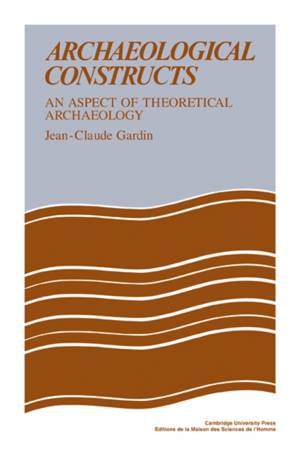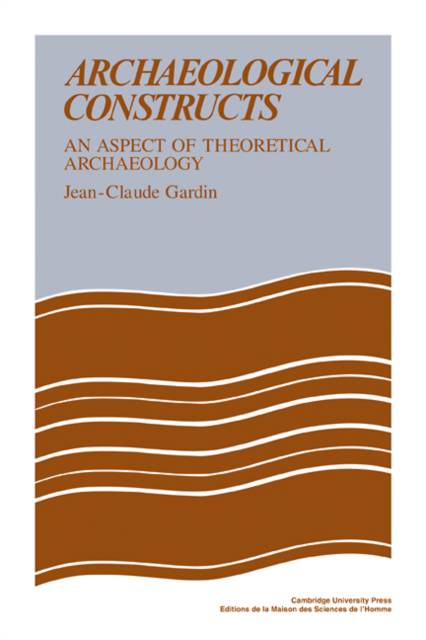
- Afhalen na 1 uur in een winkel met voorraad
- Gratis thuislevering in België vanaf € 30
- Ruim aanbod met 7 miljoen producten
- Afhalen na 1 uur in een winkel met voorraad
- Gratis thuislevering in België vanaf € 30
- Ruim aanbod met 7 miljoen producten
Zoeken
Archaeological Constructs
An Aspect of Theoretical Archaeology
Jean-Claude Gardin, J C Gardin
Paperback | Engels
€ 60,95
+ 121 punten
Omschrijving
Archaeology, like all scientific disciplines, is accumulating an ever-increasing volume of data which the researcher must be able to retrieve and use in formulating and testing theories of interpretation. There are many practical questions of how information can best be recorded, stored and disseminated, but behind these lie fundamental intellectual questions. It is to the latter that Jean-Claude Gardin addresses this book. The advent of data banks, computers, micro-publishing, etc. will not in itself improve the access of the researcher to information of real value unless some consensus can be reached on the way the information is selected and presented and the reasoning processes that these different modes of presentation embody. Jean-Claude Gardin sees this as a long-term goal, the book as one step on the way to its achievement.
Specificaties
Betrokkenen
- Auteur(s):
- Uitgeverij:
Inhoud
- Aantal bladzijden:
- 216
- Taal:
- Engels
Eigenschappen
- Productcode (EAN):
- 9780521109383
- Verschijningsdatum:
- 6/07/2009
- Uitvoering:
- Paperback
- Formaat:
- Trade paperback (VS)
- Afmetingen:
- 152 mm x 229 mm
- Gewicht:
- 322 g

Alleen bij Standaard Boekhandel
+ 121 punten op je klantenkaart van Standaard Boekhandel
Beoordelingen
We publiceren alleen reviews die voldoen aan de voorwaarden voor reviews. Bekijk onze voorwaarden voor reviews.











